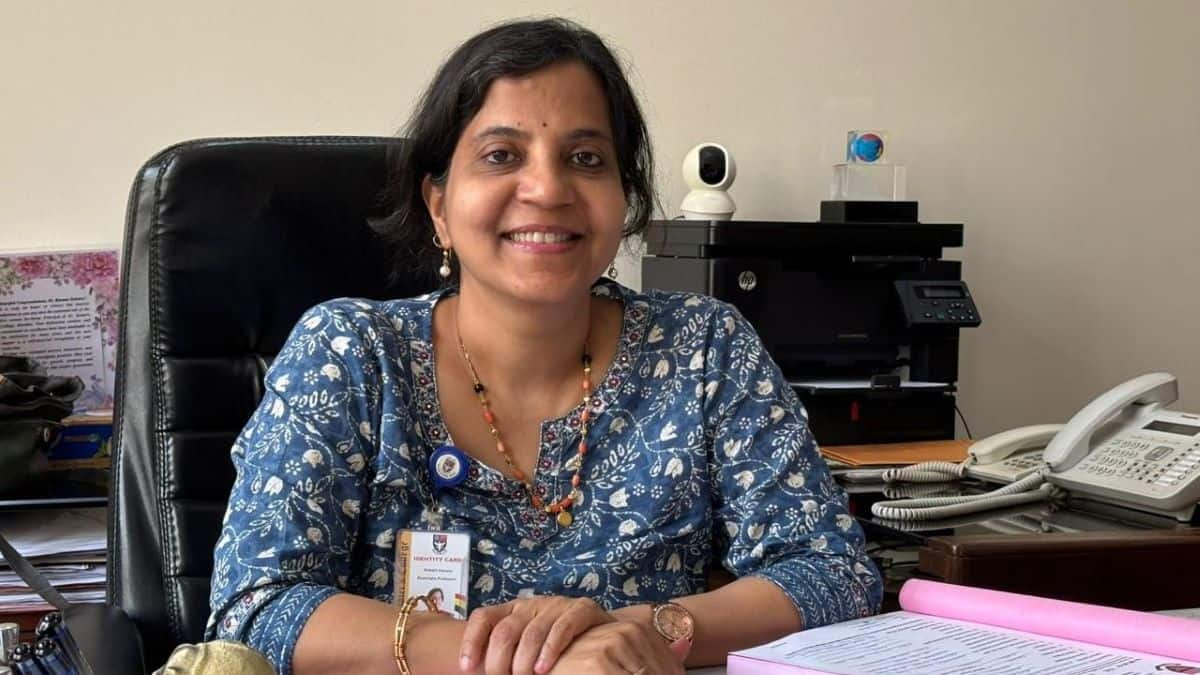St Xavier’s Mumbai head: NEP helping reimagine higher education
Team Careers360 | September 24, 2025 | 12:08 PM IST | 4 mins read
NEP 2020 is helping students move beyond rigid academics; FYUP, Academic Bank of Credits enabling learner-centred education, writes St. Xavier’s College in-charge principal

Karuna Gokarn
India’s higher education system is at a historic crossroads with the advent of the National Education Policy (NEP) 2020. More than a policy document, the NEP is a visionary blueprint that urges us to reimagine the very purpose and practice of education in India. It calls for a shift from conventional content delivery towards meaningful, transformative learning that shapes individuals, institutions, and society. At St. Xavier’s College (Empowered Autonomous Institute), Mumbai – a 156-year-old institution grounded in the Jesuit tradition of academic excellence, service, and social justice – this vision finds natural resonance with our long-standing commitment to holistic, inclusive, and values-based education.
The NEP has initiated a decisive move from rigid academic models to more flexible, learner-centered education. The introduction of the four-year undergraduate programme (FYUP) with multiple entry and exit points, alongside frameworks such as the Academic Bank of Credits (ABC) and the integration of skill-based courses, has opened doors to meaningful academic journeys. At our college, our curriculum now blends core disciplinary knowledge with opportunities for research, vocational training, social immersion, and holistic electives that develop the full potential of the learner, intellectually, ethically and socially.
The COVID-19 pandemic brought with it an unprecedented adoption of technology in higher education. Online platforms, virtual laboratories, adaptive assessment systems and AI-driven tools have since become essential elements in the educational ecosystem. At St. Xavier’s, our faculty are continuously upskilled to remain effective facilitators of teaching and learning. However, while technology has proven to be a powerful enabler, it can never replace the foundational values of mentorship, human interaction, and ethical discernment. Education is not just about transmitting information; it is a human, relational, and reflective journey that remains central to student transformation.
Also read NEP 2020 gives Indian schools space for new way of learning, with creativity, contemplation
Higher Education: Research, innovation
The emphasis on inclusion and equity deeply aligns with our institutional ethos that education must serve as a powerful force for social justice. Through sustained efforts in offering scholarships, need-based financial assistance, peer mentoring, gender sensitization, and psycho-social support, we strive to create an environment where every student feels welcomed, valued, and empowered to succeed. While access to higher education in India has increased, disparities based on language, digital infrastructure, location, and socio-cultural disadvantage continue to exist. Bridging these gaps will require concerted policy support and institutional commitment at all levels.
A vital component of reimagining higher education lies in the promotion of research and innovation. We must nurture an academic research culture where critical inquiry, experimentation, and interdisciplinary collaboration are celebrated. At Xavier’s, we have expanded research capacity across disciplines, supported by initiatives such as the Department of Biotechnology (GoI) grant, the RUSA scheme, and partnerships with private funders.
We encourage students to engage with real-world problems through guided research, project-based learning, and innovation challenges. These experiences not only build intellectual capacity but also cultivate resilience, creativity, and responsibility traits essential for future global leaders.
Our autonomy as an institution has allowed us to implement many of these transformative initiatives. Curricular flexibility, innovative pedagogy, and responsive governance are key benefits of the autonomous framework. At the same time, we hold ourselves accountable through strong internal quality assurance systems, transparent evaluations, and periodic academic audits. Our IQAC ensures that data-driven reflection and stakeholder feedback inform our strategic decisions in all aspects of our academic ecosystem.
Also read As NEP labs, Maharashtra cluster universities increased courses, seats but await government funds
The downside
Nevertheless, challenges remain. Faculty shortages, infrastructural gaps, and uneven implementation of reforms across states hinder uniform progress. To bridge the urban-rural divide and achieve both national development goals and global aspirations, we must ensure increased and consistent public investment in higher education. Looking ahead, our focus must be anchored in a few foundational pillars: institutional autonomy rooted in public purpose; academic innovation that sparks curiosity and problem-solving; integration of skills that align learning with real-world challenges; social inclusion that transforms opportunity into equity; and internationalisation that prepares students for a global future while remaining grounded in our cultural and ethical heritage.
The responsibility to realise this vision is a shared national mission. Society must support education not only with resources but also through cultural appreciation by valuing educators, creating space for internships, apprenticeship, and mentorships, and recognising education as a public good. The academic community must embrace a mindset of continuous learning, openness to change, and collaboration beyond silos. Most importantly, we must remember that the purpose of higher education is not merely to prepare individuals for employment but to prepare them for life.
We must develop in our students the ability to learn continuously, think critically, act ethically, and serve compassionately. We must nurture thoughtful citizens, courageous leaders, and compassionate changemakers.
At St. Xavier’s College, Mumbai, we remain deeply committed to this transformative vision. Rooted in our Jesuit legacy, guided by the NEP, and animated by the needs of a rapidly changing world, we walk this journey with clarity, courage, and compassion. In the reimagined future of higher education, true success will be measured not only by rankings and placements, but by the lives it uplifts, the minds it liberates, and the society it helps transform for the common good.
Karuna Gokarn is a microbiologist, who became the first woman to lead the 156-year St. Xavier's College, Mumbai, as in-charge principal. She previously served as vice principal (academics), director, IQAC and NEP nodal officer at the institute.
Follow us for the latest education news on colleges and universities, admission, courses, exams, research, education policies, study abroad and more..
To get in touch, write to us at news@careers360.com.